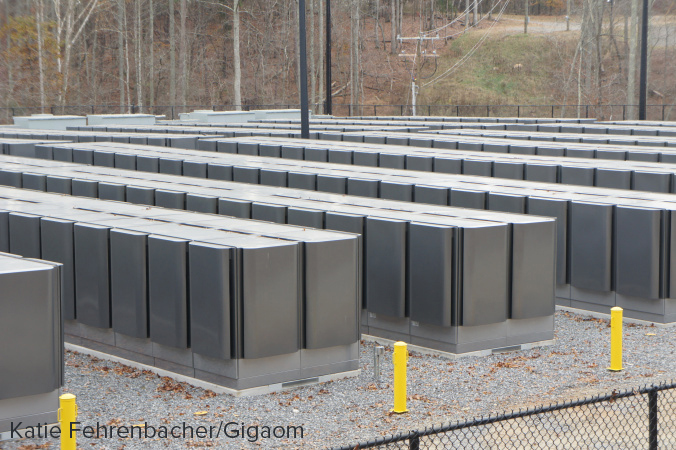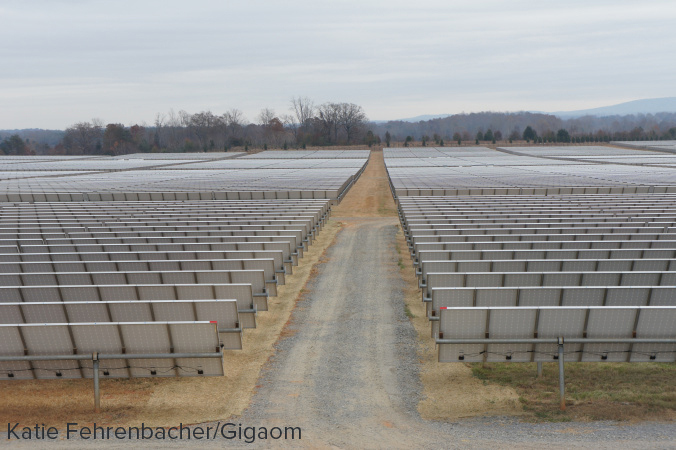Apple is one of the of the largest [non-utility] clean energy generating companies in the country. According to a report from March of this year, it’s achieved 100% renewable energy in all of its data centers, and 75% in corporate buildings.
Of course, its crown jewels are the solar panel and biogas fuel cell farms that run its Maiden, North Carolina data center—two of the largest of their kind in the US. And a recent report from GigaOM takes a closer look at these NC facilities…
Here’s GigaOM’s Katie Fehrenbacher:
“Apple’s solar panel farms were built and are operated by Bay Area company SunPower. SunPower manufacturers high-efficient solar panels, solar panel trackers and also develops solar panel projects like Apple’s. The solar farm across from the data center has over 50,000 panels on 100 acres, and it took about a year to build the entire thing.
Each solar panel on Apple’s farms has a microcontroller on its back, and the panels are attached to long, large trackers (the steel poles in the picture). During the day, the computers automatically and gradually tilt the solar panels so that the face of the panels follow the sun throughout the day. The above picture was taken in the late morning, so by the end of the day, the panels will have completely rotated to face where I was standing. The trackers used are single-axis trackers, which basically means they are less complex and less expensive than more precise dual-axis trackers.”
Apple is estimated to have spent between $150 and $250 million building each solar farm in Maiden, and a similar amount on its fuel cell farm. It was unprecedented at the time, and has still yet to be replicated by other companies.

Each solar farm generates roughly 20 MW of power, and the fuel cells add another 10 MW, for a total of 50 megawatts of power. And since Apple’s data center only consumes 40 MW at its peak, it becomes a net producer for Duke Energy.
With environmental impact and renewable energy being such hot topics for tech companies right now, the report really is interesting. And it goes into far more detail than we do here. If you’d like, you can read the full piece by clicking here.
